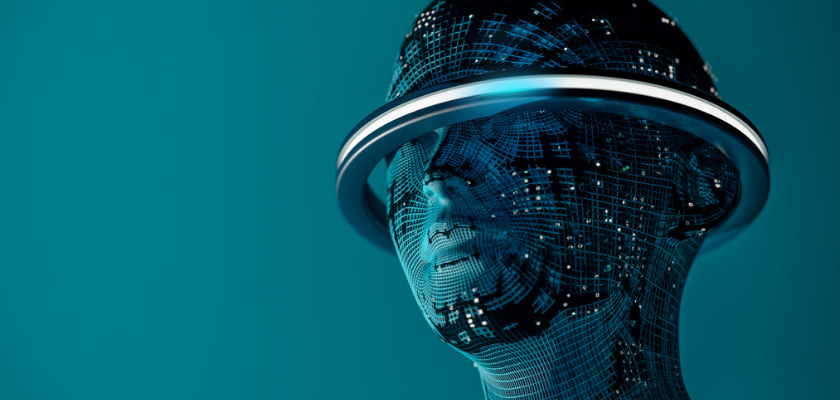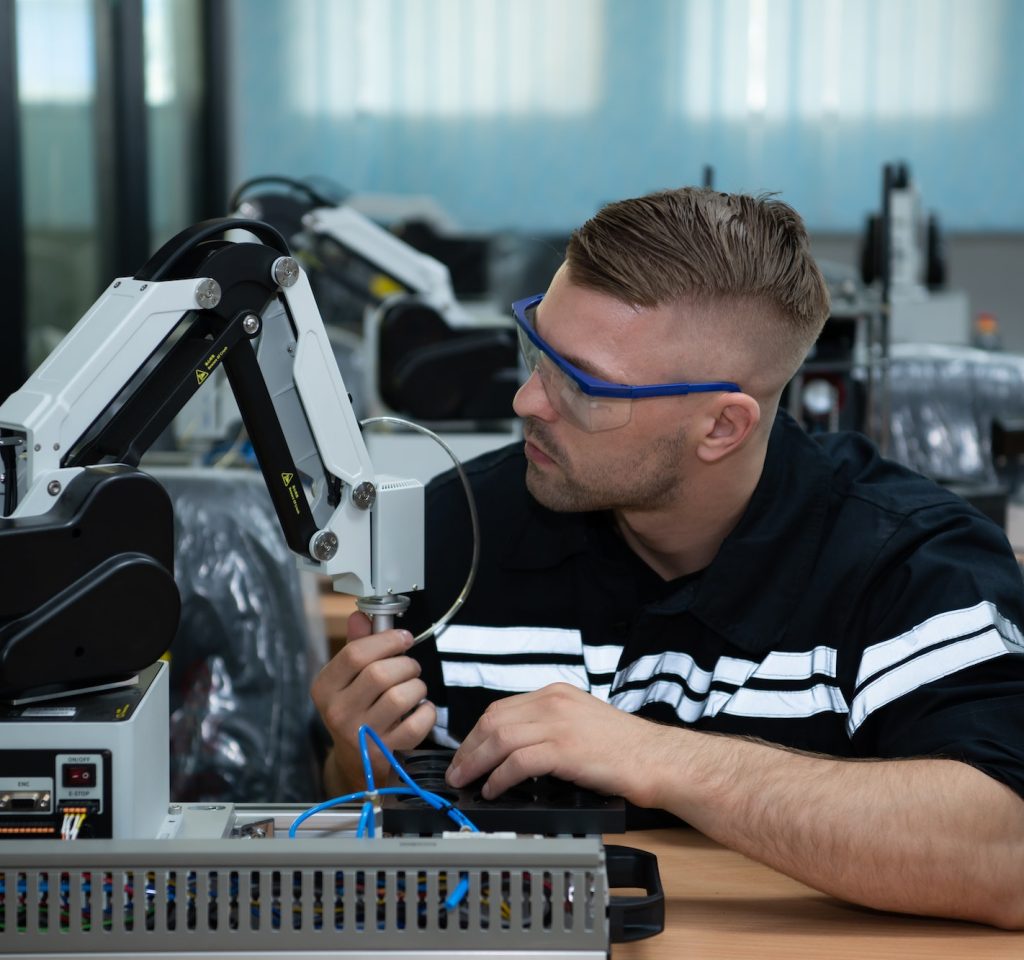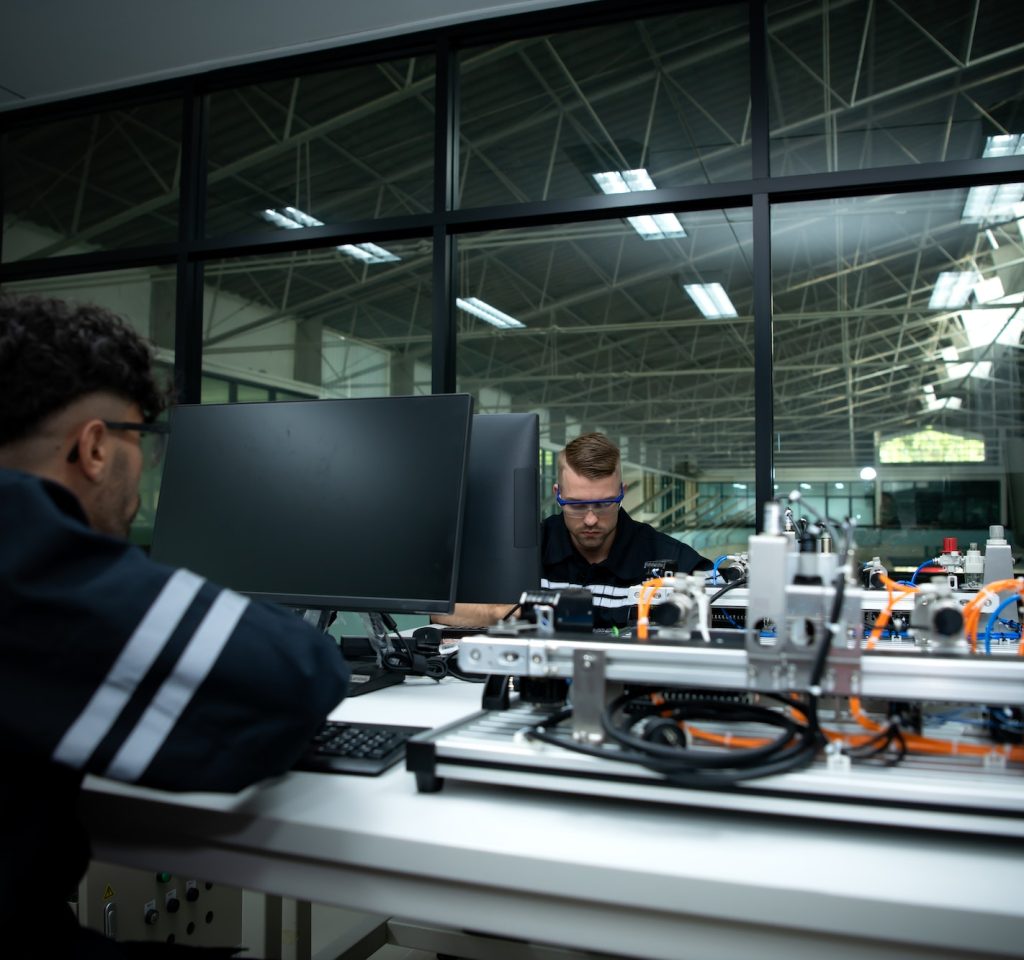AI is popping up everywhere in marketing these days leading us to think about the ultimate clash: AI vs marketing agencies. Sure, AI can handle data and trends, but what about the creativity and the human touch that agencies are known for? Maybe it’s not about one replacing the other but finding a way for both to work side by side.
Does it sound surreal? I don’t think so. We’re standing right at the edge of this big shift.
Even before the rise of the use of AI in digital marketing, marketing professionals agreed as Vineet Mehra said in Think with Google’s 2019 YouTube video:
We’re in an era where creativity, technology, and data will become the foothold of marketing culture.
From the pre-ai-xciting years of marketing, it has been expected that convergent and divergent thinking will work together to produce great creativity in the future, as affirmed by Nick Farnhill. In Think with Google’s video, the estimated date was 2030.
And in 2024, some things are crystal clear:
- AI handles tasks like PPC optimization but still needs human strategy and creativity.
- AI drafts content but lacks the emotional intuition that only marketers provide.
- AI spots trends, but human insight is key to understanding them.
- AI frees marketers for storytelling by automating repetitive tasks.
- AI can boost global productivity by up to $4.4 trillion, with a major impact on marketing.
- AI-driven personalization can lift campaign performance, like Michaels Stores’ 25% click-through rate increase.
- Up to 90% of online content could soon be AI-generated, but human creativity remains essential.
- Ethical concerns like algorithmic bias make human oversight crucial.
But there’s a lot more to unpack. Off to explore!
Want to jump?
Can We Really Jam Together?
What if AI could be your next creative partner? Not a replacement, but a collaborator.
There’s a lot of talk about AI vs. marketing agencies, but maybe it’s less about one winning out and more about how they can support each other.
AI is already changing how marketers work, and agency leaders are noticing it. In a video by Think with Google, they discuss how tools like Google’s Performance Max are streamlining ad placements.
AI can help sketch out ideas or show what a future ad might look like. But in the end, it takes human judgment to decide if those ideas fit the brand’s message. Sunil Naryani pointed out that AI is a tool that’s already crucial in today’s marketing plans.
The point is, it’s not about finding the “right” tool but figuring out how to use both effectively. Laurent Thevenet suggests that creatives should explore different AI tools, learning how to push boundaries while keeping that human touch.
So, it doesn’t have to be about choosing one over the other. You can rather find the sweet spot where AI supports agencies in delivering their best work. In this balance, we might see the rise of AI marketing agencies that mix data power with human creativity, keeping marketers effective in an ever-changing landscape.
Based on insights from McKinsey’s report, AI has the potential to streamline many marketing tasks, freeing up time for marketers to focus on the bigger picture.
Take content creation, for example. AI can quickly draft blog posts, social media captions, or product descriptions. This helps marketers keep up with the constant demand for fresh content across platforms.
AI handles the initial drafts, while marketers refine them to fit the brand’s voice. Instead of writing each piece from scratch, they can now focus on:
- editing,
- adding real-world examples,
- and conducting deeper research to include reliable sources to make the content truly valuable.
Human creativity goes beyond what AI can do. For example, say you’re launching a campaign for a new product. An AI tool might suggest using certain lines, but an agency will think about how to tell a story that connects with people.
Then there’s data analysis. For example, AI can show which social media posts are getting traction or point out if a product suddenly becomes popular. This kind of insight allows marketers to make quick changes. If AI highlights that younger audiences prefer short videos, an agency can then shift focus to meet that demand. But here’s the thing: while AI can spot patterns, it doesn’t understand the “why” behind them. That’s where human intuition comes in.
The same goes for AI in SEO. AI can help:
- flag broken links,
- suggest internal links,
- and even predict how website changes might impact rankings.
It’s like having an extra set of eyes on your site. But knowing which keywords to target and crafting content that connects with people? That’s all human.
AI is also changing how we approach ad campaigns. It watches ad performance around the clock, adjusting bids to get the best results. Instead of marketers constantly tweaking budgets, AI moves funds where they’ll have the most impact. This saves time, sure, but it’s still up to the marketer to set the strategy and decide on the direction.
Even in customer service, AI-powered chatbots are stepping in to handle basic questions, leaving human agents to deal with the more complex stuff. These chatbots learn from interactions and get better at giving personalized answers. But when the conversation becomes tricky, it’s the human team that takes over.
Ethical Considerations about AI: Where to Draw the Line
AI has changed how we collect and use data, but with that power comes big responsibilities. In a dynamic algorithmic model, predictions can happen faster than our ability to make decisions or even understand them, creating a time-lapse that isn’t easy to manage.
This leads to the ethical challenge: AI is an extension of human thinking, and if biases are built into the algorithms, they get digitally amplified. That becomes a problem when the limitations of a person or group become standardized, as exemplified by Sasha Luccioni:
As marketers, it’s on us to use data in a way that’s ethical and clear to our audience. We need to be transparent about AI-driven decisions and avoid bias while keeping the human element in our campaigns. It’s a tricky balance, but it’s key if we want to maintain trust in the industry.
What do experts think about AI and ethics?
Jason Furman, a professor at Harvard, talks about the need for understanding and regulation. He suggests that while having specialized AI groups is useful, the best approach might be to let industry-specific professionals take the lead. They know their fields and can handle AI in a way that fits with real-world applications.
Then there’s Michael Sandel, who raises concerns about how big tech companies use AI in digital marketing. He points out a problem many business leaders face: they can’t ignore the negative side effects of AI while also resisting government rules. You can’t have it both ways.
We’re at a turning point in digital marketing, where AI and human creativity come together to offer new possibilities. But this future isn’t just about fancy tech or piles of data—it’s about the stories we create and the connections we build.
As we move forward, the next chapter in digital marketing is yours to shape, if you are ready.
#Marketing #Agencies #Threats #Gains







